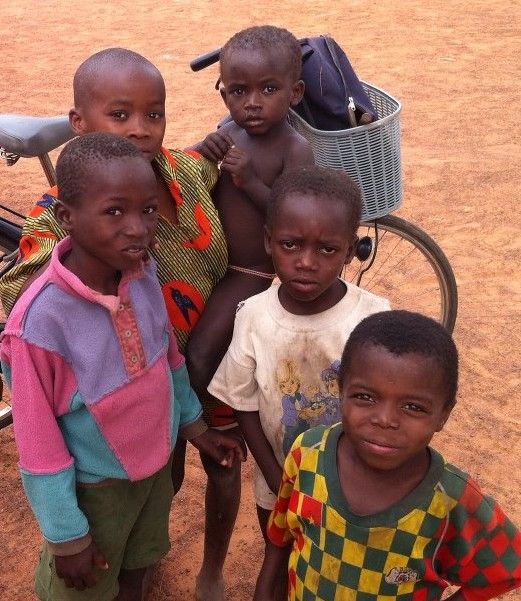Travels in Ghana

This week, a group of Episcopal Church leaders and lay members are on an Episcopal Relief & Development study tour in Ghana, West Africa, to visit the agency’s field partners and programs. Some of their individual responses from the trip will be published on the blog. Here, Nancy Davidge, editor of Episcopal Church Foundation Vital Practices, reflects on a day in the field.
For years I’ve given malaria nets as Christmas gifts to my (now adult) children, as well as other children and teens on my gift list, through the Episcopal Relief & Development NetsforLife® program. And this week, I had the chance to visit Tamale and Bolgatanga, in northern Ghana, to meet and talk with not only the Episcopal Relief & Development affiliated staff who make this happen, but also some of the families whose lives have been changed because of this program. I’m eager to share their stories with my family.
After a very early morning flight to Tamale, we stopped for breakfast, then walked over to the local offices of the Anglican Diocese of Tamale and the Anglican Diocesan Development and Relief Organisation (ADDRO) – Episcopal Relief & Development’s partner organization in northern Ghana. Walking into their office, the first thing I saw were large bundles containing nets. Each bundle contained 100 nets; the pile was four feet high and maybe six feet long. These nets will be brought to area communities where local volunteers will train families in how to use them and ensure they are properly installed.
Later in the day I learned that this Episcopal Relief & Development and ADDRO model of providing installation and training in the use of nets, as well as basic malaria prevention, has been so successful that the government of Ghana has adopted it as the official method of distributing nets. I also learned that this model, with its emphasis on a strong network of community volunteers, is leading to community members looking to ADDRO volunteers for guidance with other urgent needs.
As a person of faith, I see opportunities for Episcopal churches to look to this model for inspiration in our own communities. Looking for and lifting up local volunteers to serve as full partners with our congregations or organizations transforms our work. It changes from “doing a program for” others into one that serves God by honoring the gifts of others, as we work together in transforming our broken world and reconciling ourselves with God.
Photo: Communities are partnering with ADDRO and Episcopal Relief & Development to enable children like these to stay healthier. Courtesy of Brian Sellers-Petersen.


